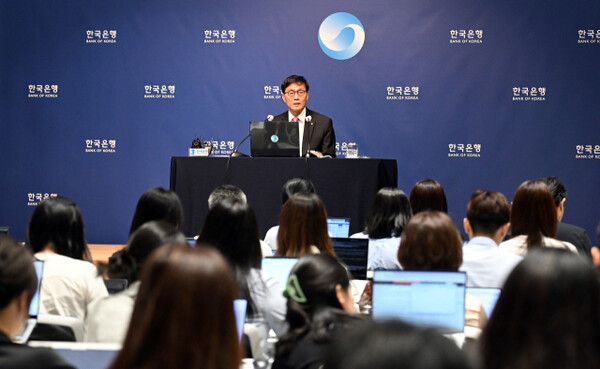
As political candidates have made pledges to issue a 'won-based stablecoin', the Bank of Korea has cautiously taken a positive stance for the first time. In major financial sectors worldwide, including the United States and Hong Kong, efforts to incorporate stablecoins into the formal financial system are gaining momentum.
Bank of Korea Governor Lee Chang-yong mentioned at a press conference after lowering the base interest rate from 2.75% to 2.50% on the 29th that "there is a need for the Bank of Korea to directly promote stablecoin issuance". However, he expressed concerns that "a won-based stablecoin could act as a substitute for currency, and if non-bank institutions arbitrarily issue it, the effectiveness of monetary policy could be compromised".
He further emphasized that "if problems occur with stablecoins with a currency nature, the trust in the entire payment settlement system could simultaneously collapse" and reiterated that "issuance should begin in a supervisable area like the banking sector". The Bank of Korea's ongoing central bank digital currency (CBDC) experiment 'Project Han River' is part of this policy direction, with the deposit tokens issued here described as an initial form of won-based stablecoin.
Stablecoins are digital assets that utilize blockchain-based technology while maintaining stable value by being linked to physical assets like the US dollar. Unlike existing cryptocurrencies with high price volatility, they are widely used in digital payments, remittances, and decentralized finance (DeFi). Recently, dollar-pegged stablecoins have been attracting attention as channels for capital inflows and outflows, prompting financial authorities worldwide to accelerate regulatory adjustments.
Hong Kong passed a stablecoin bill through its legislative council on the 21st. The law regulates coins linked to legal tender and mandates a license from the Hong Kong Monetary Authority (HKMA) for issuance or marketing. Issuers must secure reserve assets exceeding circulation volume and be able to immediately respond to investor redemption requests. HKMA Chief Executive Eddie Yue stated, "We will support the sustainable development of the digital asset ecosystem through practical and flexible regulations".
The United States is also pushing a stablecoin regulatory bill called the 'Genius Act' led by the Republican Party. The bill specifies issuance qualifications and reserve requirements and has passed the Senate, though House deliberation is delayed due to conflict of interest controversies related to former President Trump's 'meme coin business'. Vice President JD Vance actively supported legislation at the 'Bitcoin 2025' event on the 28th, stating that "stablecoins are a means of expanding US economic power".







